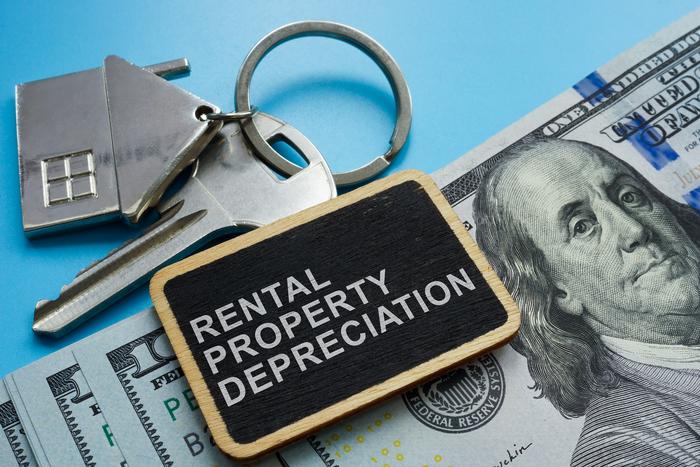Accredited Investor
An accredited investor, as defined by the Securities and Exchange Commission (SEC), is a person or entity that meets any one of the following:
-
Has an individual net worth of at least $1 million, excluding primary residence.
-
Has an individual annual income of at least $200,000 for each of the last two years and expects to maintain that level in the current year.
-
Is a general partner, executive officer (an employee serving in a position with management responsibility), director, or trustee of certain business entities.
Appraisal
The appraisal is an opinion of the value of a property. An appraiser is an expert in real estate valuation. The appraisal is based on comparable sales, which are properties that were sold within set time frames and in similar locations to the property being valued. The appraisal does not consider tax assessments or other factors to determine value but rather compares recent sales prices for similar homes in your area as well as looking at how long it took for sellers to obtain buyers' agreements and closings.
The appraiser will recommend one of three values: market value, investment value, or loan-to-value ratio (LTV). Market Value should always be used when buying or refinancing a home, because it's what buyers are paying for the house—and this can change over time due to market conditions such as interest rates, buyer demand, and inventory levels. If you're selling your home yourself without using an agent (also called "for sale by owner"), using Market Value will ensure that you get top dollar for it if someone else wants to buy it later on down the road
Appreciation / Home Price Appreciation (HPA)
Appreciation, also referred to as home price appreciation (HPA), is the increase in the market value of an asset over time.
It is a measure of the change in the value of a property over time.
Basis Point
The basis point is a common measure used to track the change in interest rates. When you hear that the Fed or other central bank has raised or lowered their target rate by 25 basis points, it means they have changed it by 0.25%. For example, if the U.S. Federal Reserve raises its target federal funds rate from 2% to 2.25% (25 basis points), this means that short-term interest rates will increase by 0.25%.
Basis points are typically used to measure changes in interest rates; however, they can also be used for measuring changes in bond yields and mortgage rates as well as other types of financial assets such as equities (stocks).
BPO Merge
BPO Merge is a form of appraisal that compares the subject property to similar properties in the market. BPO Merges uses statistical analysis to determine the value of the subject property. This term is typically used for commercial properties and can be conducted on individual buildings or as part of an area-wide survey, depending on your specific needs.
Broker Price Opinion (BPO)
A Broker Price Opinion (BPO) is a professional assessment of a property's value. BPOs are usually commissioned by a borrower or lender and can be used to determine the value of a property for purposes of mortgage financing.
CAGR
CAGR is the average annualized rate of return over a period of time. It's calculated by dividing the compounded rate of return by the number of years in the investment. CAGR can be used to compare investments over different periods, such as stocks or bonds, or even to see how your portfolio has done relative to market benchmarks like the S&P 500 Index or MSCI EAFE Index (Europe, Australasia, and the Far East).
Cap Rate
The Cap rate is a measure of the return on investment. It's calculated by dividing net operating income by the property's value. If a property has $100,000 in annual net operating income and its value is $500,000, then its cap rate would be 20 percent.
Cap rates are commonly used to determine whether an investment property will provide an acceptable return on investment for the investor. The lower the cap rate, the better for the owner; it means that he or she will earn more money from owning this piece of real estate than if they had invested elsewhere.
Comparative Market Analysis (CMA)
A comparative market analysis (CMA) is a comparison of the current market value of a property to similar properties in the same area. It's an important tool that real estate agents and investors use to determine the current market value of homes.
Capital Expenditures (CAPEX)
Capital expenditures (CAPEX) are improvements to a property that you make to increase its value and/or profitability. Examples of CAPEX include roofs, gutters, and windows.
CAPEX is considered an investment because it increases the value of your property. In this way it's similar to paying off your mortgage: as long as you don't overpay for these types of improvements—for instance if you buy expensive windows when cheaper ones would do just fine—you'll likely see an increase in revenue from them within a couple years after they're completed.
Cash Flow
Cash flow is a measure of how much cash you have left over after you pay all your expenses. Cash flow can be positive or negative. Positive cash flow means that you are making money from your investment, while negative cash flow means that you are losing money on it.
When determining the viability of any real estate investment, it’s important to look at the property’s projected cash-on-cash return or COCR. The COCR is calculated by dividing the expected annual net operating income (NOI) by the total amount of debt used to purchase and finance a property. That way, investors will know whether their money will earn more in rentals than what they paid for them upfront without having to worry about depreciation rates or capital gains taxes which may affect their bottom line later down the road if they sell before those periods expire."
Cash On Cash
Cash on cash is a concept that measures the return on your investment. You can use it to compare different properties or to evaluate the same property when it's used for different purposes.
Cash on cash is calculated by taking the amount of cash you put down on an investment property (let's say $20,000) and dividing it by the net profit from that investment (let's say $10,000), which gives us a ratio of 1:2 ($20k/$10k = 2). We can also look at our initial investment as 100 percent:100 percent ($20k/$0 = 100/0 > 100%).
Clear Title
Clear Title: Title is the legal document that proves ownership of a property. A title search is an investigation of the title to determine if there are any liens or other claims on the property. Title insurance is a policy that protects against losses due to a defective title.
Closing Costs
Closing costs are the fees associated with buying or selling a home. They can be paid by any party involved in the transaction, but typically are paid by the buyer or seller. Closing costs can vary greatly depending on where you live and how much money is involved in your purchase. Closing costs usually range between 1% and 5% of the home’s value. Some closing costs are paid by lenders, while others may be financed through private mortgage insurance (PMI).
Diligence
Diligence is a series of procedures and steps taken to ensure you're investing in a property that wont cost you a lot down the road. This is a brief list of some of the major things you should do prior to signing a contract.
-
Make sure the property is in good condition and up to code.
-
Make sure there are no liens or judgments against the property.
-
Make sure it has been well maintained, with no deferred maintenance issues (e.g., broken windows).
-
Make sure that all permits, licenses, and inspections are up to date (e.g., HVAC system). You will likely want to hire an inspector if this is your first investment property so that you can ensure there aren't any underlying problems with the home's structure or foundation before signing on for repairs later on down the line!
-
Check for environmental hazards such as lead paint in older homes - these can be very expensive fixes once discovered later down the road!
Distributions / Dividend
A dividend is a distribution of a portion of a company's earnings, profits or net income to its shareholders. Dividends can be paid in cash, stock, or property. Dividends may be issued as liquidation distributions and/or capital gain distributions on the ex-dividend date.
The recipient of a dividend is usually the shareholder who has been invested in a company for more time than anyone else (longest). If you invest in a fund that owns shares in companies that pay dividends, then you will receive those dividends if they are paid out by those companies. For example: If one share costs $10 and it pays $1 per year in dividend, then this would be considered to have an annual yield of 10%.
Down Payment
Down payment is the amount of money you pay for a property, as a percentage of its total value. The down payment is usually the first step in buying a property and can be made in cash or financed.
If you are buying with a mortgage, the lender will require you to submit proof of your ability to make monthly payments on time. This means that they need to see evidence that you have enough money saved up to cover your down payment and closing costs, plus some wiggle room for unexpected expenditures such as repairs or taxes.
Equity
Equity is the difference between the value of a home and what's owed on it. If your home is worth $200,000, but you owe $175,000 (including interest), then your equity is $25,000. Equity can be used as a down payment for another house or to pay off your current mortgage—or it can be used for other purposes like paying for college tuition.
The more equity you have in your home, the better off you'll be when selling or refinancing it later on.
Estimated Total Cash Return
Estimated Total Cash Return: The estimated total cash return is the estimated amount of cash that will be received from a property during a specified time frame.
The cash return is based on a projected net operating income and capital expenditures.
Estimated Total Gain
Estimated total gain (ETG): The estimate of the profit you can expect to make from a property. ETG is calculated by multiplying the expected rent by the expected appreciation, which is also known as the capitalization rate.
Income Property
Income property is a rental property. Rentals are considered as a form of income and maybe the main source of revenue for real estate investors. Rental income is paid by tenants who live in the house or apartment that you own and rent out.
Rental income is net of operating expenses, mortgage payments, real estate taxes, and all other costs associated with the ownership and operation of an income property.
Initial Investment
The initial investment is the amount of money you need to purchase a property. It may be broken down into a down payment, closing costs, and rehab costs.
Initial Investment = Down Payment + Closing Costs + Rehab Costs
Insurance: Landlord or Property
It is important that you know what kind of insurance you need and how much it costs, as well as how to get it and when it needs to be renewed.
There are two types of insurance:
Landlord Insurance - For example, this type of property insurance covers loss or damage to the building caused by fire, storm or other perils including theft and vandalism. It also covers liability claims against you if someone is injured on your property.
Property Insurance - This type of insurance covers loss/damage due to fire and water damage as well as break-ins/burglaries that result in theft or vandalism (such as broken windows). It can also include coverage for additional living expenses while repairs are being made after a natural disaster strikes your home so that you don't have to move out while contractors fix everything.
Internal Rate of Return
The internal rate of return (IRR) is a measure of the profitability of an investment. It is the discount rate that makes the net present value (NPV) of all cash flows from an investment equal to zero.
IRRs can be calculated using many different techniques, but they are most often estimated using a spreadsheet program or calculator that approximates them using iterative calculations. A trial-and-error process is used to find values that make the IRR as close to 100% as possible. Because this requires multiple steps and therefore time, it’s often more efficient to use an analytical approach instead.
Investment Property
An investment property is a real estate property that is purchased with the intent of making a profit through rent or capital appreciation. These properties are usually bought with cash and rented out to tenants, who help pay down the mortgage. They are often bought in a different market than the owner's primary residence.
Leveraged Return
Leveraged return is the ratio of the dollar amount of the investment to the amount borrowed or the ratio of the return on investment to the interest rate on a loan. For example, if you invest $10,000 and borrow $20,000 in order to buy something that returns $50,000, your leveraged return would be 2:1. Leverage is used by investors because it magnifies gains—and losses—when compared with investing without leverage.
Net Operating Income
Net Operating Income, or NOI, is a measurement of how much income a property generates each year in excess of its operating expenses. In other words, it’s the profit potential for a property after all expenses—including mortgage payments and taxes—are paid.
You can calculate NOI for any given month by adding up all the income generated by your property during that time period: rent from tenants, late fees and other charges collected from renters who aren’t paying on time (if applicable), parking fees collected from employees who use company parking lots, etc.
Operating Expenses
Operating expenses are the costs of operating a property, including:
-
Insurance (property, liability, and any others)
-
Property taxes
-
Maintenance, repairs, and improvements.
-
Utilities (gas, electric, and water/sewer)
-
Landscaping expenses.
Operating Expenses should be calculated separately from Capital Expenses.
Property Manager
The property manager is the person who runs your rental property. They handle the day-to-day tasks and responsibilities, such as collecting rent and managing tenants’ needs. They also ensure that the property is up to code (when necessary), and they deal with any issues that may arise.
Finding a good property manager can be difficult—there are several things to consider before making a decision:
-
How much experience do they have?
-
What type of companies do they work for? (Are they local or national?)
-
Do they have references that you can check?
Property Taxes
Property taxes are taxes levied on real estate. Property taxes are typically paid monthly or yearly, and they vary depending on the location of your home. In most places, property tax bills are issued to homeowners in arrears rather than being due all at once.
In some areas of the U.S., property taxes may be included in the total cost of your mortgage payment; however, it is more common for these payments to be separate from mortgage payments.
Regulation D
Regulation D is an investor protection regulation that limits the amount of money a person can invest in real estate. It applies to non-professionals and caps their investment at $10,000 per year. (The limit used to be $5,000 but was raised in 2002.)
Retail Investors
Retail investors are individuals who invest in real estate for their own use. They may or may not be licensed real estate agents or brokers, but they do not invest in real estate as a business.
Retail investors are not experienced, real estate investors. They often have little to no knowledge about the rental property market; therefore, they buy properties that are not ideal for rental income generation and experience low occupancy rates and vacancies.
Self-Directed IRA
A self-directed IRA is a self-managed retirement account that allows investors to invest in real estate. A Self-Directed IRA can be used to purchase real estate, tax liens, and private mortgages.
Investors often use this type of investment for their own retirement funds. This can be useful when you have access to extra money and want to invest it without having someone else manage your investments for you.
Single-Family Rental
Single-family rentals are when a single home is rented to a tenant. The property owner is responsible for repairs and maintenance, and he or she collects rent from the tenant. It's important to note that if you're renting out your single-family home, you have to deal with all kinds of paperwork.
Term
A term is the length of time a loan agreement lasts. It's usually expressed in years (5-year loan, 15-year loan, 30-year loan).
Title Report and Title Insurance
A title report is a document prepared by an attorney or title company that sets forth the history of ownership of a property. It also tells you who holds the current mortgage, how many times it has been refinanced, and whether there are any liens against the property. If there are liens against your home, you need to pay them off before closing on your purchase because they will take precedence over any amount owed to you as part of your mortgage payment. If there are no liens against your property but there is still someone else who claims legal rights to it (for example, if one spouse dies without having written a will), this could be problematic for you later down the line.
Title insurance protects you from any problems that arise from having purchased real estate with unclear or disputed titles (e.g., if someone else holds legal rights to some portion of your house). In addition to covering these kinds of situations when they occur, title insurance also helps ensure that no other person claims ownership after purchasing their own home from yours—a situation known as "adverse possession."
Yield
Yield is a measure of annual return on investment. It's calculated by dividing the annual return on investment by the purchase price and is usually expressed as a percentage.
Conclusion
I hope this has been helpful. If you have any questions, please contact our team at SmartZip.com
 (25).png)




















